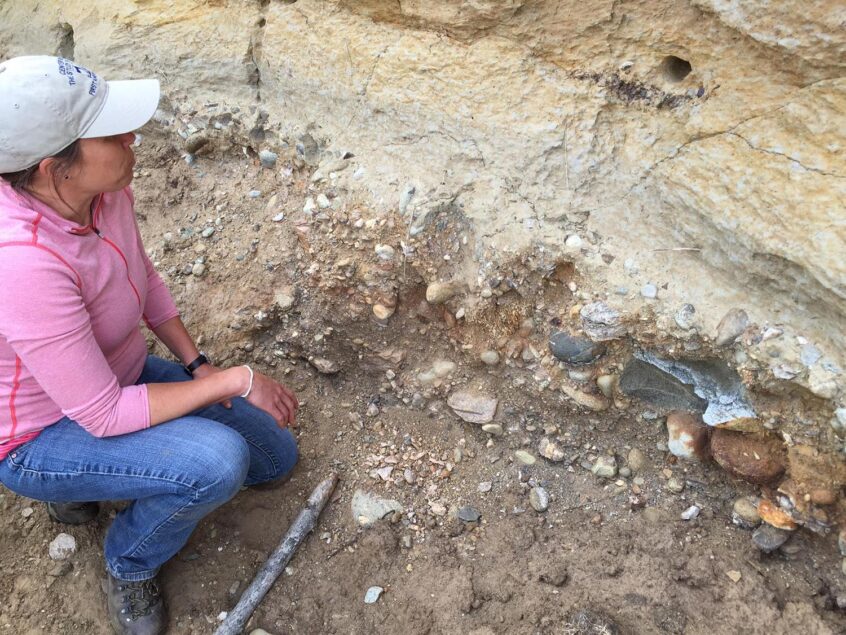MAS Announces Keynote Speaker for the 2024 Annual Meeting

The MAS is pleased to announce that our keynote speaker for the 2024 Annual Meeting (March 22-24) is Dr. Kelly Graf. The meeting will be in Jefferson City at the Capital Plaza Hotel. The keynote presentation will be given after a banquet dinner on March 23. Purchase of a banquet ticket is not required to attend Dr. Graf’s presentation. The MAS meeting is open to the public, more details will be announced soon.
Dr. Graf will present Siberia, Beringia, and the Peopling of the Americas
Traditionally, peopling of the Americas studies focused on questions of when and from where initial human migration to the Western Hemisphere took place. Researchers have argued for arrival as early as before the last glacial maximum (LGM) to as late as 14,000-13,000 years ago, coinciding with the origins of the Clovis archaeological tradition, and for a founding population from Northeast Asia, Southeast Asia, or even Europe with people crossing the Bering Land Bridge, skirting the Pacific coasts, and/or boating across the Pacific and Atlantic oceans. New developments in ancient human genomic studies provide a framework for better understanding the tempo and geography of first peoples’ arrival. Documentation of several paleogenomes from late Pleistocene and early Holocene contexts indicate an initial migration from Northeast Asia through Beringia to the Americas. Here, we will explore the archaeological record of northern regions within a paleogenomics context to help fill in gaps in our understanding of the dispersal process to the Americas.
Kelly Graf received a B.S. degree in Anthropology and Geology from Missouri State University (then Southwest Missouri State University) in 1995. She received her M.A. degree in Anthropology from the University of Nevada, Las Vegas in 2001 and her Ph.D. degree in Anthropology from the University of Nevada, Reno in 2008. In 2008, she joined colleagues in the Center for the Study of the First Americans at Texas A&M University, serving as a research affiliate with the CSFA, and then in 2013 she was hired in a tenure-track position at TAMU, earning tenure in 2017. In 2022, she was invited to join her colleagues in Anthropology at the University of Kansas.
In addition to the study of the peopling of the Americas, her research interests focus on human adaptations in extreme northern and arid environmental settings and human response to extreme climatic oscillations, for example the Siberian last glacial maximum and rapid climatic upheavals at the Pleistocene-Holocene boundary in Alaska, Great Basin, and far southern Patagonia. As an environmental archaeologist, she uses geoarchaeology and the study of lithic technological organization to learn about human adaptations in these contexts. Since 2008, Kelly has directed three excavations of terminal Pleistocene-aged sites in Alaska (Owl Ridge, Dry Creek, and currently Shég’ Xdaltth’í’), and with colleagues she has co-directed excavations at several additional sites in Nevada, Utah, Alaska, Russia, and Argentina. She has taken more than 150 undergraduate and graduate students with her to the field. Several students have co-authored conference presentations and peer-reviewed journal articles and book chapters with her, reporting results of these projects. She also values working with descendant communities, involving them in her research.